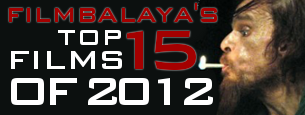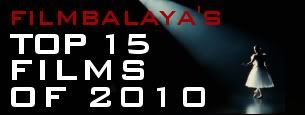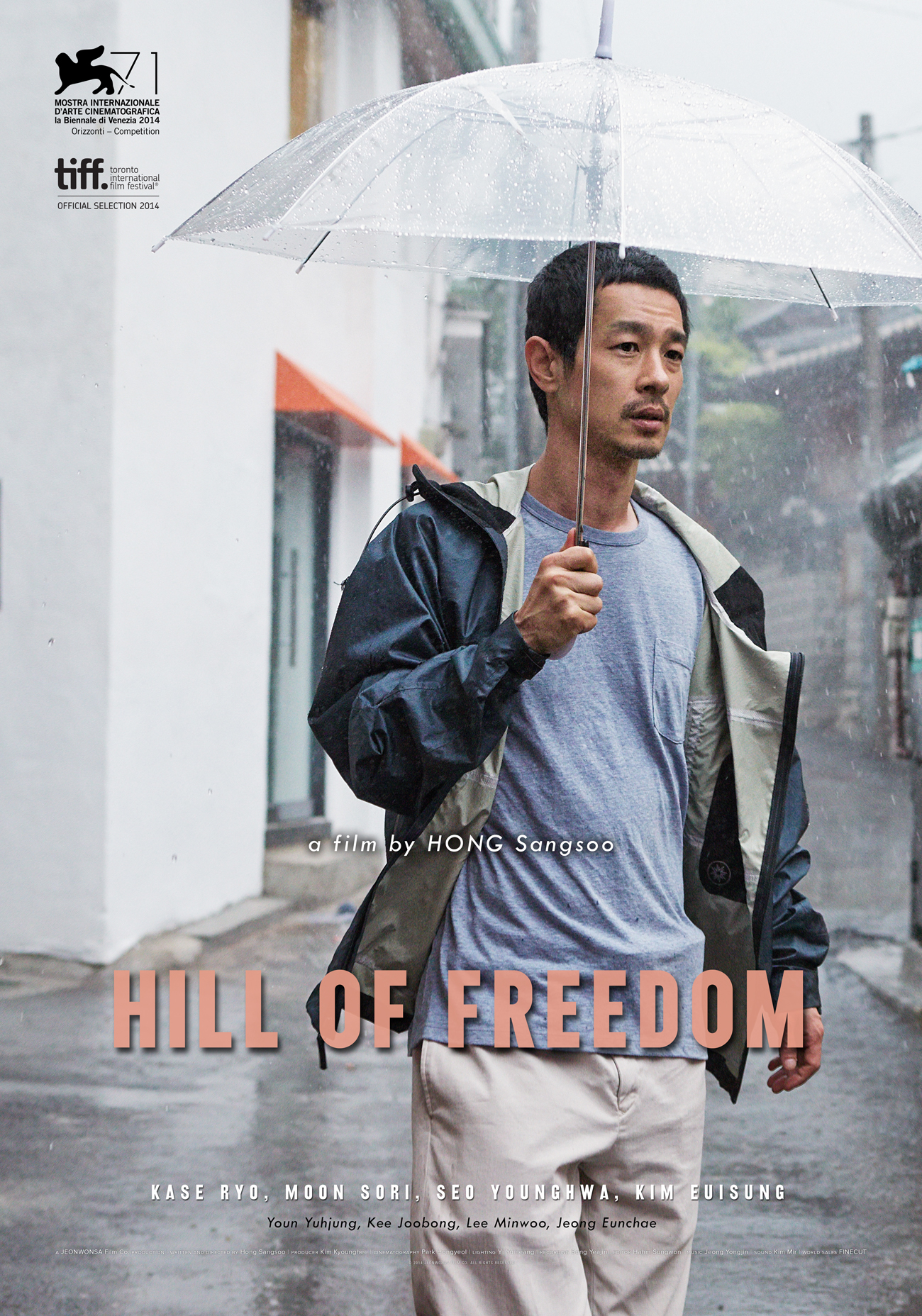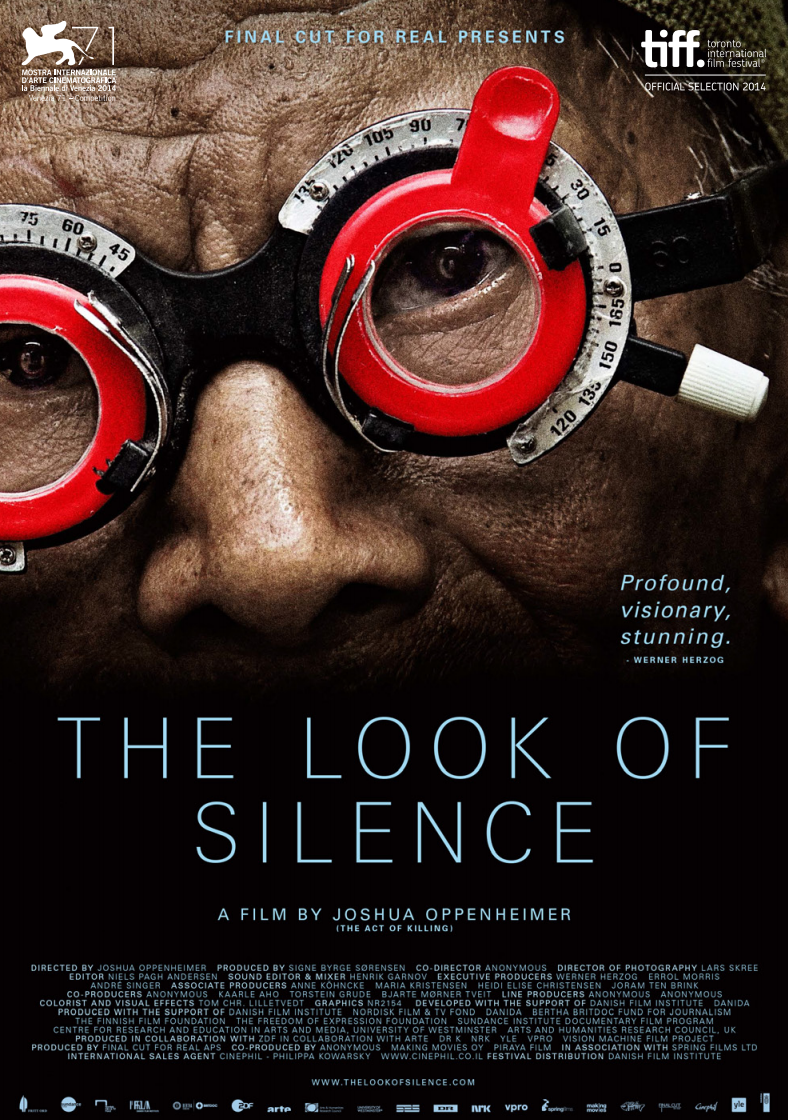 Did you know San Francisco had a sister? Well, she does, and, get this, she lives in Switzerland of all places. Seriously (okay, semi-seriously) it’s true! Her name is Zürich, or as San Francisco AKA Frannie calls her, Züri. Now, from what I’ve heard, she is every bit as beautiful as our charming Frannie is, but you don’t have to take my word for it. From October 18th through the 20th these two sisters will be flaunting their sibling similarities up on the silver screen for all who wish to gaze into their kinship. Ah yes, Frannie and Züri together at last.
Did you know San Francisco had a sister? Well, she does, and, get this, she lives in Switzerland of all places. Seriously (okay, semi-seriously) it’s true! Her name is Zürich, or as San Francisco AKA Frannie calls her, Züri. Now, from what I’ve heard, she is every bit as beautiful as our charming Frannie is, but you don’t have to take my word for it. From October 18th through the 20th these two sisters will be flaunting their sibling similarities up on the silver screen for all who wish to gaze into their kinship. Ah yes, Frannie and Züri together at last.
All screenings to be held at New People Cinema (1746 Post Street). For the full schedule, ticket info, and film reviews of “The Conversation”, “Fräulein”, “Medicine for Melancholy” and “The Swissmakers” follow the jump.
Click on movie title for ticket and film information
Friday, October 18th:
Double-Feature – 7:00pm The Fall (1972) Followed by 9:30pm The Conversation (1974)
Saturday, October 19th:
Double-Feature – 1:00pm The Wild Parrots of Telegraph Hill (2005) Followed by 3:00pm Downtown Switzerland (2004)
Double-Feature – 5:00pm Fräulein (2006) Followed by 7:00pm Medicine for Melancholy (2008)
9:30pm – Punk Cocktail: Zürich Scene 1976-80 (2006)
Sunday, October 20th:
1:30pm – Vitus (2006)
4:00pm – Day is Gone (2011)
Double-Feature – 6:30pm The Swissmakers (1978) Followed by 8:30pm Freebie and the Bean (1974)
The Conversation

 Contrary to what the above picture might have you believe, Francis Ford Coppola‘s The Conversation is not a science-fiction/biopic hybrid starring Gene Hackman as the inventor of the first ever electronic paddle ball iPhone. Although, how cool would that be? It could be called “The iPADdle Conversation“. Instead, this is a earnestly toned paranoid thriller starring Gene Hackman as Harry Caul, a secret surveillance expert and independent contractor, who apparently is in dire need of a vacation.
Contrary to what the above picture might have you believe, Francis Ford Coppola‘s The Conversation is not a science-fiction/biopic hybrid starring Gene Hackman as the inventor of the first ever electronic paddle ball iPhone. Although, how cool would that be? It could be called “The iPADdle Conversation“. Instead, this is a earnestly toned paranoid thriller starring Gene Hackman as Harry Caul, a secret surveillance expert and independent contractor, who apparently is in dire need of a vacation.
I can’t think of anything to possibly add to the conversation (pardon the pun). The film is now nearly 40 years old, and has already had just about everything that could be said about it said. There is a seemingly infinite amount of illuminating observations that have already been made, so I figure I’d highlight a few of them for you now. But before doing so I must first strongly urge you to see this film as soon as humanly possible, preferably in an actual cinema should the occasion present itself to you (wink, wink, Friday, October 18th at San Francisco’s New People Cinema).
Roger Ebert spoke of the film’s writing as something that “comes from another time and place than today’s thrillers, which are so often simple-minded.“
Michael Brooke of Sight & Sound Magazine said of Hackman’s performance “Hackman’s intensely withdrawn performance, the hardest kind for a leading actor to bring off (especially an extrovert like Hackman), only comes to animated and enthusiastic life when Caul is discussing technology and technique: at all other times his life is strictly controlled and compartmentalised, with even sex arranged by appointment.“
Brooke also had this to say when speaking of the extraordinary technical achievements of the film, “The opening scene in San Francisco’s Union Square, in which the conversation is recorded in the first place, remains a masterclass of staging and editing, the soundtrack constantly dissolving into electronic chirrups (just as the 35mm version drove unprepared projectionists spare, so this version will cause equipment-conscious domestic viewers to momentarily panic about their speakers) as Caul and his team, which includes John Cazale in the second of his five films, constantly track and retrack their quarry, attempting to frame and focus the sound with the same precision as Haskell Wexler’s camera (Wexler shot this sequence before being replaced by Bill Butler).“
Fräulein

 Director Andrea Staka‘s displacement themed drama is a heavily focused (both figuratively and literally) character-driven story.
Director Andrea Staka‘s displacement themed drama is a heavily focused (both figuratively and literally) character-driven story.
Figuratively speaking, The film follows three women who, each in their own way, are coping with life outside of their native homeland. Ruza (Mirjana Karanovic), having left Serbia over 30 years ago, is a bit of a hard-ass. She runs a canteen (what Americans would call a cafeteria) within a Hospital. Career wise, her life in Zürich has become a successful one, yet at what cost?
Ana (Marija Skaricic) having arrived from Bosnia, brings with her a large bus locker’s worth of proverbial baggage. Aside from losing her brother to a war, she’s also homeless, has leukemia, and works for one hell of a strict boss in Ruza.
Then there’s Mila (Ljubica Jovic), whose storyline doesn’t get as much attention as the other two women. Heck, she isn’t even featured on the DVD cover, or any of the movie posters for that matter. Her dreams of one day returning to her native Croatia aren’t looking too hopeful, thanks mainly in part to her husband who has zero desire to once again start anew. Like Ana, Mila too works for the no-nonsense boss, Ruza.
Even though at times it teetered on the brink of toppling over into that dreaded area of saturated melodrama, I still had no trouble getting on board with this story. What I did have trouble with was adjusting to the excessive use of characters being filmed so close that often we only see parts of their heads within the frame. I get that this up close and personal style of shooting is not without its purpose (obviously to convey a literal up close and personal esthetic), and I applaud the filmmakers for choosing to add this layer (as unnecessary as I feel it was) to their film, yet that still doesn’t change the fact that this effect rendered me dizzy and on the brink of nausea. Then again, maybe I just had too much junk food prior to watching this.
Medicine for Melancholy

 After watching this I still have no idea what kind of medicine I should take if I were to suddenly break out into a fit of melancholy. Perhaps I should just non-romantically befriend a neighbor for the day and walk around the city with them. But just because I don’t have the answer to the meaning behind Jenkin’s film title doesn’t at all mean its a bad movie. Quite the contrary.
After watching this I still have no idea what kind of medicine I should take if I were to suddenly break out into a fit of melancholy. Perhaps I should just non-romantically befriend a neighbor for the day and walk around the city with them. But just because I don’t have the answer to the meaning behind Jenkin’s film title doesn’t at all mean its a bad movie. Quite the contrary.
Director and writer Barry Jenkins‘ day in the life snapshot of Micah (Wyatt Cenac) and Jo (Tracey Heggins), is to the city of San Francisco what Richard Linklater‘s better known “Before Trilogy” (Before Sunrise, Before Sunset, and Before Midnight) is to Ethan Hawke, Julie Delpy and their fabulous European locations.
Yet beautifully immortalizing San Francisco (circa 2007) isn’t reason enough for me to give Melancholy a firm stamp of approval, or for that matter, to boldly claim its right of comparison to Linklater’s excellent Before Trilogy. In order to do that, the script, and the actors who inhabit it, must effectively carry exceptional weight – which, I assure you, they do.
Jenkin’s script is loaded with intelligent dialogue, engaging, complex, and most importantly, believable characters, and it also remarkably handles topical and still very relevant societal issues such as race and gentrification. And yeah, as an added bonus for those super familiar with the San Francisco landscape, there’s also the joy of watching scenes shot at Rainbow Grocery, the YBCA’s MLK memorial and waterfall, the creativity carousel, The Knockout Bar, and a multitude of familiar streets from very specific neighborhoods. However, you don’t have to have lived in, be from, or even familiar with the city of San Francisco in order to enjoy Barry Jenkins‘ 24 hour one-night-stand one-day-stand film – though it does help.
The Swissmakers

 As a comedy, The Swissmakers could use some help in the funny department. Then again, maybe I’m just too stupid, shallow, unsophisticated, ignorant, uncultured (pick one) to properly judge the humor of 1970s Swiss cinema. After all, this was the country’s highest grossing film for 19 years running, until in 1997 when it was sank by a film called Titanic (ever heard of it?). I would say that practically makes this a Swiss national treasure, wouldn’t you, and hey, who doesn’t like cinematic national treasures (especially ones with Nicholas Cage in them, right?) Well, I don’t, that’s who.
As a comedy, The Swissmakers could use some help in the funny department. Then again, maybe I’m just too stupid, shallow, unsophisticated, ignorant, uncultured (pick one) to properly judge the humor of 1970s Swiss cinema. After all, this was the country’s highest grossing film for 19 years running, until in 1997 when it was sank by a film called Titanic (ever heard of it?). I would say that practically makes this a Swiss national treasure, wouldn’t you, and hey, who doesn’t like cinematic national treasures (especially ones with Nicholas Cage in them, right?) Well, I don’t, that’s who.
So, when it comes to funny what do I know? Well, for one thing, I know – or at least I like to think I know – how to subjectively identify a well made film from say, a tonal mishmash of off-putting comedic and musical timing, as well as misfired attempts at anything even remotely engaging.
Swissmakers follows two agents from the Swiss Bureau of Naturalization, one of which is a seasoned cynical stereotyper, the other, a rookie in training. The two of them are investigating three case subjects, i.e., foreigners seeking citizenship. And that’s the film in a nutshell.
I’ll give the Swissmakers props for having a funny and promising premise, but that’s where the accolades stop. It’s too bad, because the premise of bureaucrats and immigrants interacting with each other has such a high potential to be funny, yet the script is so unbelievably dull I nearly fell into a coma – nearly. C’mon, if I were in a coma, would I be writing this?
Unless the subtitles weren’t translated correctly – which is likely – the dialogue could easily be mistaken as something out of a drama, albeit a very dry and dull one. But perhaps the strangest head scratching element of the film is the odd placement of score cues being used to indicate when something was supposed to be funny. It’s like playing that wacky Benny Hill music over the holocaust drama, Schindler’s List. Okay, so that’s a bit of an exaggerated example, but I think you get my point. The music was just very awkwardly fitting.
By now you can probably tell that I didn’t love this movie. I will say this for it though; It at least left me with more questions than it did answers, and that’s something, right? For instance: Am I judging this movie too harshly? Would my opinion by completely reversed were I able to understand the German language better? Are my Americanistic comedic sensibilities to… um… American for me to be able to digest what director Rolf Lyssy has given us? If I fail to murmur even the tiniest of chuckles at a nation’s most popular comedy do I still have a soul? And the most important question, Are you supposed to put wine in the fondue pot?















Leave a comment